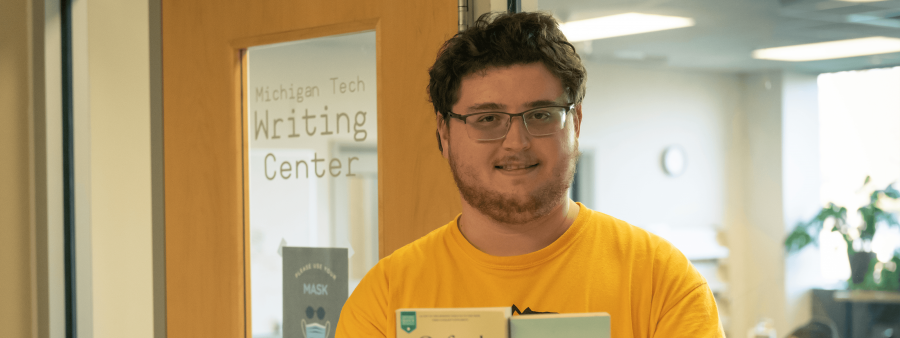
In April 2011, the Autism Society celebrated the first Autism Acceptance Month. Throughout the decades, Autism Spectrum Disorders (ASD) have received negative attention, and individuals with autism were portrayed as deficits to society. Thankfully, it’s become more accepted as one’s identity. In honor of April’s heritage month and the spirit of autism acceptance, I would like to share my journey as someone on the spectrum.
Learning about my diagnosis
My parents suspected something was different about me as I grew up. I was initially non-verbal for my first four years and had difficulty socializing. I would also randomly organize objects such as toy horses and chairs, lining them up to my specifications. Throughout elementary school, I worked with aides to keep me connected with students. Middle school was where I felt most like a shell, while high school was where I felt most exposed and emotional. My freshman year of high school is where the crux of my self-understanding occurred.
In 2014, I was diagnosed with Atypical Autism, formerly known as Pervasive Developmental Disorder Not Otherwise Specified (PDD-NOS). The rest of high school felt surreal, knowing I was on the spectrum and deliberately working to build my social skills. My interests in writing and computer science guided me towards Michigan Tech and a career in either computer engineering or computer science.
Embracing my autism at Michigan Tech
Michigan Tech taught me how to really examine myself and consider where my interests lie. I discovered my true interests through my editing and nature writing courses and transitioned to the English program in summer 2020. Since I faced the truth that I didn’t want to write code for a living, I’ve found much more pleasure in schoolwork, connected more fully with my professors and peers, and become more active in my department. I still have my interest in computer science, so I added it as one of my minors, along with German and writing.
Academically, I wasn’t always enjoying my studies. In Computer Science, I struggled with engaging with my courses out of anxiety. I felt like I wasn’t good at all with coding, and I accepted mediocrity to hopefully get a job. Otherwise, I would put myself out in a field that I admittedly felt little confidence in.
I still struggle with crowded places, as I feel judgment for everything I do. Even if I’m aware no one is paying attention to me, it doesn’t help. Anxiety has also led to self-sabotage in my relationships and opportunities. One of my biggest regrets in life is not completing the Leading Scholars Scholarship Application out of fear of rejection. Since then, I’ve worked with preparing myself for rejection while still being optimistic enough to try it. I’ve also dealt with hyperfocus on particular tasks, where I immediately jump onto one assignment or job and not do anything else until I’m done. It’s detrimental to my time management skills if the task takes a considerable amount of time or if it can be prioritized at another time. Being aware of both allows me to prepare ahead of time for my instincts.

About the Author
Tucker Nielsen
Interest Areas
- English, graduating senior
- Minors in computer science, German, and writing
- Social media and public relations
- Working for business or within secondary or post-secondary education
- Lego® bricks, playing guitar, reading suspense/science fiction, and going on walks/hikes
One job on campus where I build up my social, writing, and mentoring skills is as a coach in the Michigan Tech Writing Center. When clients bring in their writing, I work with them to guide them on how to clearly communicate their thoughts. It’s collaborative work, as we discuss what they’re looking for as writers. I always enjoy seeing a student suddenly realize exactly what they need to do; their excitement is simply contagious!
It’s also another opportunity for me to continue working on my social skills—speaking to the clients, other coaches, and the Center’s assistant director. This work helps me manage my social anxiety by presenting a safe, controlled environment to engage with others. The consistent schedule of coaches also keeps everything similar enough that I don’t have to worry about too much change, yet I can still enjoy new students coming in.
Acceptance and growth as a Husky
After graduating, I want to work locally with communications for secondary and post-secondary education, such as public relations and social media campaigns. I want to build up relationships between students and schools so that engagement remains open and the school is promoted, either directly in my work or through consulting. Many Keweenaw businesses are (or could be) incorporating community events, histories, and culture into their brands. In this field, I can see my creative potential fully realized as I’ve learned from myself at Tech.
If Michigan Tech has taught me anything about myself, it’s about being true to myself. I can’t change how I stim to balance my emotions and that’s ok. My bouncing and flapping of hands are part of what helps my brain process the amount of stimulus I encounter. In public, I can get away with bouncing my legs or fidgeting with pencils. But I still need this expressive outlet to manage my thoughts. I’m more social and outgoing than my younger self through my acceptance of my condition. Managing my anxieties hasn’t been easy, but working with myself has allowed for opportunities to grow as someone on the autism spectrum.